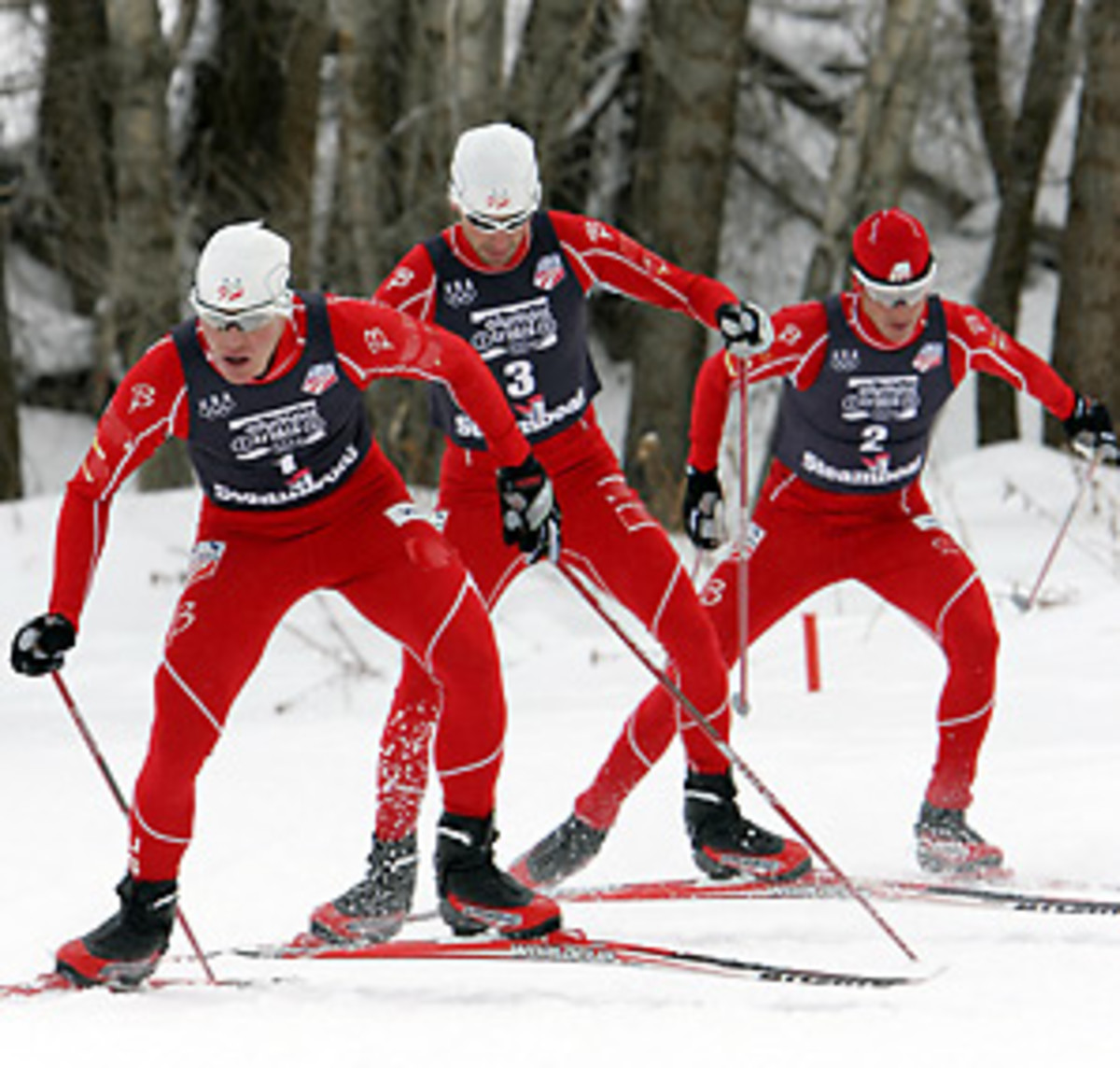
Nordic preview in Vancouver
What, you haven't heard of Nordic combined? Well you better ask somebody, because the U.S. team is coming on strong in this mix of ski jumping and cross-country skiing. The competition starts with ski jumps -- judged on style and distance -- and the results of the jump portion determine the staggered starting times for the subsequent cross-country race. Whoever finishes the race portion first wins it all. (Women do not yet ski jump in the Olympics, so Nordic combined will only be competed by men in Vancouver).
Jason Lamy-Chappuis, FranceBorn to an American mother and French father, Lamy-Chappius lived his first couple years in Montana. By age 5, though, the family had moved to the French countryside where "Jez" took up cross-country skiing and ski jumping, and he will compete for France at the Olympics. Lamy-Chappuis is one of the best ski jumpers in the Nordic combined world, so look for him to be out in front when the skiing starts, and to try to hold off the charging field. He took fourth in the sprint (7.5-kilometer race portion) in Turin in 2006, and took two bronzes at the '09 world championships. He is currently atop the World Cup standings.
The other athletes to watch wear red, white and blue. The United States has never won an Olympic medal in Nordic combined, but expectations are sky high after Americans Todd Lodwick -- who will be competing in his fifth Olympics -- and Bill Demong collectively won three golds and a bronze at the world championships last February. Lodwick won gold in the 10-kilometer normal hill, and the 10-kilometer mass start, and Demong took gold in the 10-kilometer large hill and bronze in the 10-kilometer normal hill.
Demong and Lodwick combined to win all three of the individual events at last year's world championships. The U.S. was a favorite in the only other event, the 4x5-kilometer team relay, but Demong lost his competition bib -- he tucked it in his suit, and it somehow slipped down his leg -- and was disqualified. Nonetheless, the U.S. team was the cream of the class at the world championships. Johnny Spillane, the '03 world champion in the 7.5-kilometer sprint, will also represent the U.S. in Vancouver, rounding out the "Big Three" for the U.S. team. Last month, Spillane won his first World Cup gold at a 10-kilometer event in Germany.
The U.S. relay team could be the one to beat. Demong, Lodwick and Spillane were on the team that finished fourth in Salt Lake City in '02 and seventh in Turin in '06, and all three are at the top of their games and flush with confidence.
"It gives me goose bumps to think that we're standing on the precipice of what we could achieve," says head coach Dave Jarrett. "And it's not going to require anything super or special." Adds Demong: "In '02, none of us had had a World Cup medal ...we have a lot of success on a daily basis now, and we feel comfortable fighting for medals and victories."
The relay is going to be a ferocious free-for-all. Austria, Germany, Norway and the U.S. all have at least two of the top 12 Nordic combined athletes in the world, and Finland isn't far off. Norway's Magnus Moan only medaled in the relay at '09 worlds, but he's one of the best in the world and he appears to be peaking just in time for Vancouver. VANOC might do well to employ a horse-race announcer for the relay, as it should be tight. And that's without even mentioning Japan, the surprise winner of last year's world championships relay.
Nordic combined athletes aren't just picking the suit color they think is the hippest for the jump. The different-colored suits have different air resistance properties and actually function differently, with some flying through the air faster than others. The suits also have different air resistance in the front and back. In order to restrict athletes from creating flying squirrel parachute suits, though, suits are tested by event officials to make sure that they fit the athlete snugly, and that every section is permeable to a minimum prescribed amount of air flow.
Individual Normal Hill/10-kilometer: Feb. 14Team 4x5-kilometer Relay: Feb. 23Individual Large Hill/10-kilometer: Feb. 25




